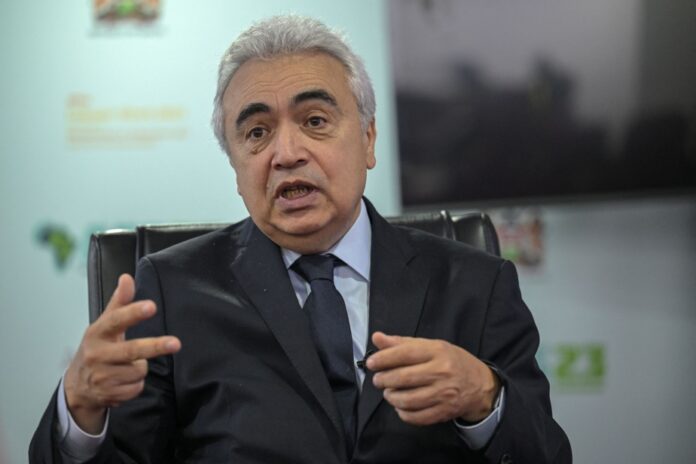(Nairobi) The head of the International Energy Agency (IEA) on Monday urged the United States and China to put aside their “tensions” and stand together on climate change, warning in an interview on Monday told AFP that geopolitical fractures risked hampering the clean energy transition.
Speaking on the sidelines of the African Climate Summit in Nairobi, Fatih Birol said international divisions, partly fueled by Russia’s invasion of Ukraine, “are becoming more and more pronounced”.
“I really hope that at the next COP28, the United States and China, the two largest emitters (of greenhouse gases), will put aside their geopolitical and economic tensions,” he said .
“When I look at the future of energy and climate, it seems to me that the best and most optimistic agenda is for (the issue of) clean energy to be central,” added the IEA President. , calling on the two countries to “come together” to advance climate issues.
According to him, the world is moving too slowly to achieve the objectives of limiting global warming agreed by the international community in Paris in 2015.
In general, international divisions, fueled in particular by the conflict in Ukraine, “are becoming more and more pronounced”, he said.
These divisions “cast great doubt” on the future because “international collaboration between the main players will become much more difficult,” he stressed.
The next UN climate conference (COP28), scheduled for late November and early December in Dubai, is expected to give rise to strong opposition on energy issues, both geopolitical and economic, in order to seek solutions jointly on essential issues.
November’s climate summit in the oil-rich United Arab Emirates is likely to be dominated by divergent views on energy.
For Birol, global tensions are “completely” holding back progress on the clean energy transition. He warned of a “strong reaction” from some countries and companies, without naming them.
But he added that despite the shift, more than 80% of power plants built globally last year focused on renewables.
Biro says Africa is poised to play a “pivotal” role in the energy transition, with huge renewable potential and around 40% of the essential minerals needed for batteries and hydrogen fuel cells.
He added that countries in the region may need to continue exploiting their gas resources for certain activities, which he said would not significantly increase the continent’s tiny carbon footprint of around 3% of global emissions. .
The IEA chief further urged the international community, especially Western countries, to avoid “naively dogmatic” decisions for the continent, which could exacerbate divisions.
Instead, he said, the international community should focus on helping Africa realize its “enormous potential”.
It is, he said, an “injustice” that around half of the continent’s population does not have access to electricity, despite Africa being home to 60% of the best solar energy resources. in the world, the now cheapest means of producing electricity.
Furthermore, Mr. Birol added, millions of people across Africa use open fires or rudimentary ovens for cooking, which aggravates respiratory illnesses, particularly among women.
For Mr. Birol, both problems could be solved with a contribution of around 25 billion dollars, the approximate cost of a new LNG (Liquefied Natural Gas) terminal.
Insisting that oil and gas companies see access to energy as a top priority, he added that it would cost $4 billion, or roughly less than 0.1% of revenue than major Fossil fuel companies have racked up last year to help millions of people access clean cooking technologies.
“It is in my opinion a litmus test for them, as to their seriousness and their sincerity,” he judged.
Currently, 3% of energy investments in the world are made in Africa. African countries are also crippled by the rising cost of debt.
Pressure is mounting for a reorganization of the international financial architecture to better align it with climate goals and green development, particularly as the International Monetary Fund and World Bank prepare for their fall meetings in October.
Both institutions “failed the test”, he said, calling for delivering on recent pledges by boosting concessional finance and unlocking loans.















